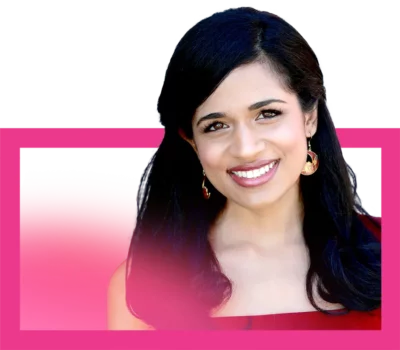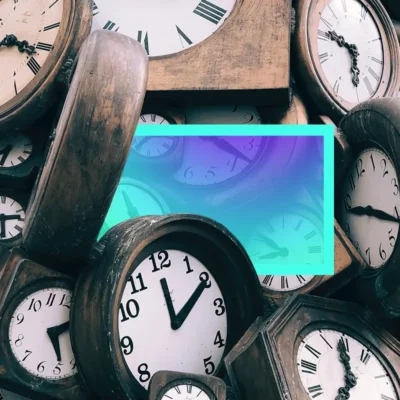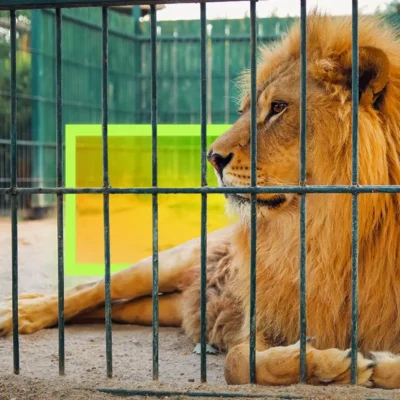The joy of being an unwilling traveler through life
Maya Shankar is a cognitive neuroscientist and host of the award-winning podcast A Slight Change of Plans. As a girl, she struggles with taking things too seriously: herself, the sufferings of others, the hypothetical misfortunes she imagines for the future. She turns to her father for perspective — and he takes her on a memorable walk, one that helps her understand her place in the universe (spoiler: it’s not not at the center of it). When her adult life brings a new and unexpected kind of sorrow, she turns to these lessons from her father again, to find a balance between the seriousness that comes with loving life and the wise perspective of knowing we’re all just passing through.
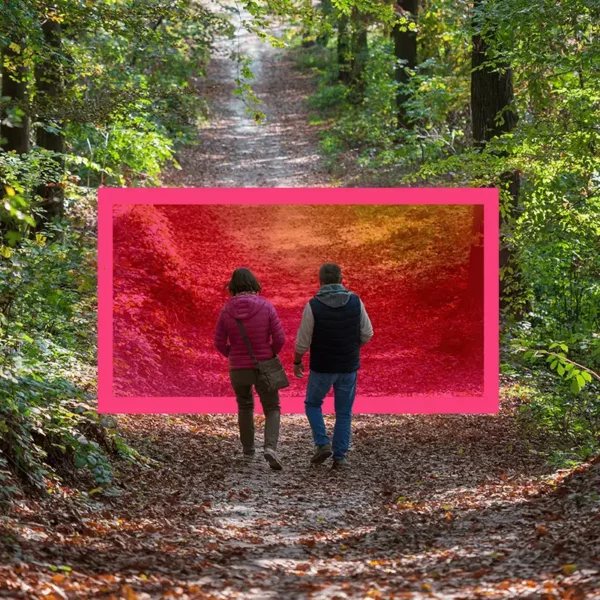
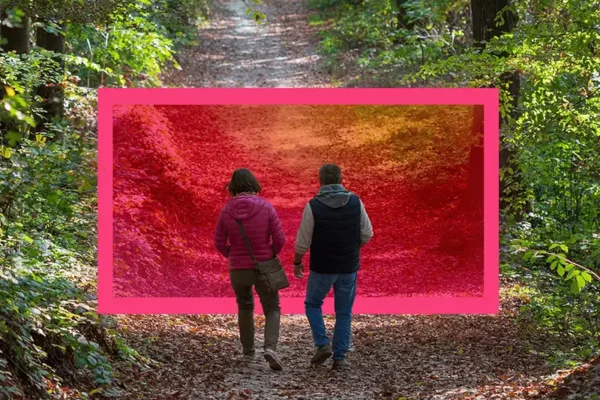
Table of Contents:
Transcript:
The joy of being an unwilling traveler through life
MAYA SHANKAR: Jimmy invokes all of his warmth and channels my dad to remind me how in these critical moments, sometimes a slight shift in perspective, that little bit of distance is all I need. And what I learn from this gratitude exercise is that I had become so zeroed in on my quest for motherhood, I’d lost sight of how otherwise rich and multidimensional my life is.
ROHAN GUNATILLAKE: Maya Shankar is a cognitive scientist and host of the podcast A Slight Change of Plans, selected as the Best Show of the Year by Apple in 2021. As a girl, she struggles with taking things too seriously: herself, the sufferings of others, the hypothetical misfortunes she imagines for the future. She turns to her father for perspective — and he takes her on a memorable walk, one that helps her understand her place in the universe (spoiler: it’s not at the center of it). When her adult life brings a new and unexpected kind of sorrow, she turns to these lessons from her father again to find a balance between the seriousness that comes with loving life and the wise perspective of knowing we’re all just passing through.
In this series, we combine immersive first-person stories, breathtaking music, and mindfulness prompts so that we may see our lives reflected back to us in other people’s stories. And that can lead to improvements in our own inner lives.
From WaitWhat, this is Meditative Story. I’m Rohan, and I’ll be your guide.
The body relaxed. The body breathing. Your senses open. Your mind open. Meeting the world.
SHANKAR: The apartment in Chennai, India is simple and spartan, but full of warmth. My husband Jimmy and I tour the small prayer room with our hosts — friends of our family. It showcases dozens of glinting metal bowls and statues and paintings of Hindu gods and goddesses in shades of pink, blue, and gold. We settle into the sitting room, the heart of the house. It’s full of chatter and laughter. I’m so excited to be showing my relatives off to Jimmy. Last Thanksgiving, we visited his ancestral homeland, China, and this year it’s my turn. My aunt and uncle chuckle with their playful banter as our hosts serve us snacks: chai served in stainless steel cups, and an assortment of dried fruits, nuts, and fried snacks. The room reminds me of my grandmother’s old house with notes of clove and cardamom filling the air.
Jimmy and my uncle sit under white fluorescent lights on one side of the room. They’re comparing notes on the nature of consciousness. Jimmy, from a scientific perspective, and my uncle, as a Hindu spiritualist. It delights me to see Jimmy at ease with my family.
They say opposites attract, but Jimmy and I have minds that are wired so similarly. We reason through problems the same way and have similar reactions to things.
Our greatest point of division lies in our philosophies around existence. And now that the conversation has turned to consciousness, I chime in and try to explain this difference to my uncle and aunt as our friends bring out more plates of food.
“Jimmy is in awe of the fact we humans have consciousness at all,” I say. “And when he recognizes just how small the chances were that his consciousness came into existence, he is overwhelmed with gratitude. Jimmy is just so happy to be here, feeling and thinking things. And the prospect of losing that terrifies him. If he could transfer his consciousness into a machine to ensure that he could continue to feel and think indefinitely, Jimmy would do it in a heartbeat.”
My uncle and aunt look at me with amusement.
“But for me,” I continue, “my attitude towards existence is completely different. We all inevitably encounter suffering in our lives. And I find this fact distressing. If you were to tell me that you could reverse the clock and never bring me into existence, I think I would be completely fine with that. Nonexistence does not scare me — suffering does.”
I shrug. Jimmy has always thought I’m a bit odd for having this view. He cannot wrap his mind around the fact anyone would have such a cavalier attitude towards whether or not they exist. It especially surprises Jimmy to hear this view coming from me given my positive nature.
But now, I see my aunt nodding vigorously. “Aha,” she says, smiling at me. “You are a UTTL!”
“A what?” I say.
“It’s what I am!” my aunt exclaims. “And your uncle too. We’re both UTTLs. Unwilling Travelers Through Life!”
I burst out laughing. Unwilling Travelers Through Life. It is perfect. I feel this delight, this sense of deep connection. I’ve never heard my aunt use this term before, but I immediately know what she means. And so does Jimmy. Our eyes meet and I can tell what he’s thinking: “So this is where you get it from!”
I’m deeply troubled by human suffering. This is why I am an Unwilling Traveler Through Life. As a little kid I’m torn up seeing the impoverished children my own age during my visits to India. I watch my grandparents suffer as they age. I feel it myself when I’m bullied by the other kids at my suburban elementary school. If we didn’t exist, sure there wouldn’t be joy, but there also wouldn’t be misery — or the ever looming threat of future misery. I marvel that my aunt has reached this same conclusion and has coined a charming phrase that captures our philosophy: An Unwilling Traveler Through Life.
I beam at my aunt, my uncle, and at Jimmy. I’m not alone on this odd desert island. It has other inhabitants!
GUNATILLAKE: Does the idea of being a little detached to life feel wise to you or something else? Let’s take a breath to reflect on the word detachment and how it doesn’t have to also mean disconnected. What might connected detachment be like?
SHANKAR: The conversation affirms my belief that if we can become a bit detached from our own existence, a little less enamored of it, perhaps we can better accept life’s inevitable tragedies.
I grow up in Cheshire, Connecticut. Our home is a bit of a stretch financially for my family of six, all living on my dad’s salary as an assistant professor of physics.
One afternoon when I’m in third grade, I sit with my dad in our family room. We’re surrounded by light blue wallpaper and beautiful Indian artwork my mom painted as a young girl. A Persian rug covers the floor. We sit on our crinkled leather sofa. I tell my dad about our latest assignment at school, where we have to dive deep into a topic. I’ve chosen DNA. Since my father’s a scientist, I imagine that he’s going to love that I’ve chosen something “science-y.” So I share it with him, and then as an afterthought, I casually mention that my friend Marie’s project is about “savants” — people with extraordinary mental gifts and talents.
My dad pauses and remarks, “Savants! Now that’s a fascinating topic…” My nerdy competitive streak swings into full gear. I shoot back, “Whoa, whoa, whoa, what do you mean that’s fascinating? DNA is the most fascinating topic!” My father hears my reaction and leans forward. “Hey Maya,” he says, a bit sternly. “Quick geography lesson: The world does not revolve around you.”
His gentle frown hangs under his black mustache. I so rarely see that frown, so it really packs a punch. He lays it out clearly for me: “Let’s not forget that you are one of many, Maya. You should not only be ok with other people having better ideas than you, you should expect that that will be the case.” My dad feeds me this big slice of humble pie, and I take it in.
He’s telling me that when we step outside of our own egos, our trials and tribulations are put in context. We remain humble when good things happen and are more resilient when things don’t go our way.
My dad’s philosophy helps me weather some difficult times. Growing up, I love playing the violin, and it becomes the centerpiece of my childhood. At age 9, I’m accepted at the Juilliard School of Music’s pre-college program. As a teenager, Itzhak Perlman invites me to be his private violin student. But at 15, I suffer an acute hand injury that ends my career overnight. I’m heartbroken.
By the time I get to college, I have started to accept this loss. My dad, who teaches here at Yale, is never far. Sophomore year, I live in a dorm on College Street, and if you keep walking up that street, you’ll eventually get to Science Hill, where his office is. Sometimes we meet halfway to walk around the leafy streets of New Haven or to have lunch at Naples, our favorite pizzeria. Extra red pepper flakes please — always.
This fall at school I’m plagued by a new concern.
From the time I was a little kid, I’d always dreamed of becoming a mom. I had a play kitchen set with a telephone on it, and my dad would overhear me calling my fictitious neighbors to share stories about my mischievous children. Despite my being an Unwilling Traveler Through Life, I’d somehow always managed to have an idyllic view of what my kids’ lives would be like, filled with constant joy, smiles, and snuggles.
This Fall, that image, which had slowly been forming cracks, is now fully punctured. I’ve been reading about a series of violent attacks against transgender and gay teenagers. Now the realization is crashing down on me that my kids could suffer terribly in this world. And my imagination starts to run wild with the countless ways they could feel pain.
I’m only 18 years old. Yet here I am consumed by an obsessive loop of painful images of my children suffering — children I don’t even have yet.
I call my dad in despair. He drops whatever he is working on and greets me on the sidewalk. We pull our coats tight against the wind. I start to explain my worries. When I’m like this, I have a pit deep in my stomach, and I completely lose my appetite. I feel nauseated. My world feels under threat.
“Boju,” he says, a pet name he’s had for me since childhood. “Let’s head this way.”
We set out in silence. My dad leads me to the entrance of the Grove St. Cemetery. We’ve never gone this way before. It’s a cloudy, ominous day. We enter through an impressive stone archway, almost like a temple. The last of the leaves are falling from the oak trees. The air smells like damp earth. In front of us we see the old headstones of people who led complicated lives, like ours. Just rows and rows of headstones.
“Look, Boju,” my father says, sweeping his gaze around us. “No matter what suffering we endure, this will be our fate. So never let your fears grow too big.” I let out a hesitant smile. Novel parenting style, Pops! But he’s got me. Something in my mind is shifting. My anxiety, my worries — they lift just a bit. In bringing me to this graveyard, he’s showing me that one of the antidotes to suffering is not trying to prevent it altogether. Instead we can take the perspective of the universe. No matter what our suffering, it is impermanent. All suffering does eventually end.
Not everyone finds comfort in feeling small and transient in the vastness of the universe, but I do. It takes the pressure off. I see that the stakes maybe aren’t as high as my brain wants to believe. These thoughts fill me with calm. This walk with my dad is just what I needed.
GUNATILLAKE: Does this work for you? Knowing that we are infinitesimally small can be very freeing, but it can also be a bit scary. For Maya there is calm here, what is here for you?
SHANKAR: By the time Jimmy and I are married, he knows me so well. He knows of my deep desire to have children, but that the idea of their potential suffering brings me great anxiety. I’m not sure I’ll have the courage to eventually become a mom.
But Jimmy’s love of life is infectious. He’s not immobilized like I am by the idea that our children might suffer. I think, “Why create another Unwilling Traveler Through Life?” Whereas he thinks, “Yes, we will all experience pain, but there can also be such joy in this life that it’s well worth the risk.”
Over time, Jimmy slowly helps erode my fears. And because he understands how my mind works, together we figure out strategies to help me deal with my anxieties — including some of the methods my dad has taught me over the years.
And so I find the courage to take the leap. Because of medical issues, Jimmy and I make embryos, and we partner with a surrogate to carry the pregnancy. The whole process takes years, but one day we are finally peering at a blue line on a plastic stick. Our surrogate, Haylee, is pregnant! But six weeks in, the pregnancy fails. For so long, motherhood has been this enormous presence in my life — first in my consuming fear of it, then in my pursuit of it, now in my grief.
We end up trying again. And this time, at the six-week mark, we’re surprised to discover that Haylee is carrying identical twins — our single embryo has split in two! Jimmy and I are elated. Then, just a few hours after we see the images of these perfect little beating hearts, Haylee starts bleeding. I know what’s going to happen. And I can hardly bear it.
Evening has fallen in the Bay Area. I’ve snuggled under the comforter and am staring at our off-white wall and the few books that lay on our dresser. Jimmy stands in the doorway.
“May-ee,” he says, his nickname for me. “May-ee, let’s list some things we’re grateful for.”
“No, I really don’t want to,” I say, shaking my head. The idea of gratitude feels jarring in this moment.
“It’ll be quick,” he says. “Let’s just name a few things we’re really thankful for.”
I sigh. I glance over at Jimmy’s reassuring smile. He looks at me encouragingly. “Okay, Number one on my list is Jimmy. And then I name some other things: my six nieces and nephews, my family and best friends, my morning cups of chai which bring me comfort and warmth and have become a ritual over the past few years. A podcast I love creating so much, which allows me to emotionally connect with humans all over the world and mine wisdom from their stories. Even my exercise routine, which has kept me sane and happy through the pandemic.”
Jimmy invokes all of his warmth and channels my dad to remind me how in these critical moments, sometimes a slight shift in perspective, that little bit of distance, is all I need. And what I learn from this gratitude exercise is that I had become so zeroed in on my quest for motherhood, I’d lost sight of how otherwise rich and multidimensional my life is.
Like all efforts to make ourselves feel better in the moment, this one’s not perfect. But this meaningful shift in my perspective, that my dad has been helping me to cultivate since childhood, it brings me some peace. It’s similar to the relief I felt walking with my dad on that Fall day nearly two decades ago. I reflect back on those conversations in New Haven and in Chennai. The images are comforting. When my life feels heavy, even a small change in perspective can help me to survive it.
We’re all just briefly and bravely traveling through this life.
Rohan’s closing meditation
GUNATILLAKE: Thank you Maya, your story has me reflecting on the importance of subtle shifts of perspective in my own life.
In her Meditative Story, Dr. Laurie Santos journeys to an island in Puerto Rico where she’s one of only a few humans among thousands of monkeys. Here, she discovers how the company of non-humans can help us all better understand ourselves. You can check out Laurie’s episode via the link in our show notes.
There are so many elements of Maya’s story that I could use as the runway for our meditation together, so I’m going to be greedy and pick three.
And we’ll start by lightening our footprint.
Eyes open or closed, know what it is to be light upon the earth. Nothing for us to do. Our weight supported by the earth.
The movements of our mind. The sensations of our bodies. Fluid. Changing. Lightweight.
We’re aware of our experience as it’s blown around. Thoughts. Sensations. Like dandelion seeds on the breeze.
Maya’s story is also about suffering. Suffering that is real, and suffering that is imagined. And maybe a suffering that is a layering of the two.
Things can be hard. There is everyday suffering. And there is the suffering you wouldn’t even wish on your nemesis.
It’s what it is to be human. There is a universality to it. And a lightness. The knowledge that we all just stumble through somehow.
Billions of people. Each the center of their own world, but not the center of the world.
Eight billion dandelion seeds all in a spaciousness.
It’s almost dandelion season here in Glasgow, Scotland, so we’ve seen the first here and here on our walks. We pick them up, and with our breath send them out into the air, to float, to be light. Each one a wish.
In the toughest of times, Jimmy points Maya to gratitude. I wish I had his wisdom. So let’s take his invitation ourselves too.
Let’s just do it. Let’s just name a few things we’re really grateful for. I’ll start.
The long summer days. Disney plus. Good running trainers. My wife putting up with my cooking.
Ok, your turn now.
As Maya says: Sometimes we become so zeroed in on the thing. So it can be helpful to remember that our lives are multidimensional and full. You too can be more Jimmy, and remember that even in the difficult times.
You too can be more Maya, and practice it even when we don’t want to. You too can be light. Delicate upon this earth.
Thank you Maya.
And thank you.

